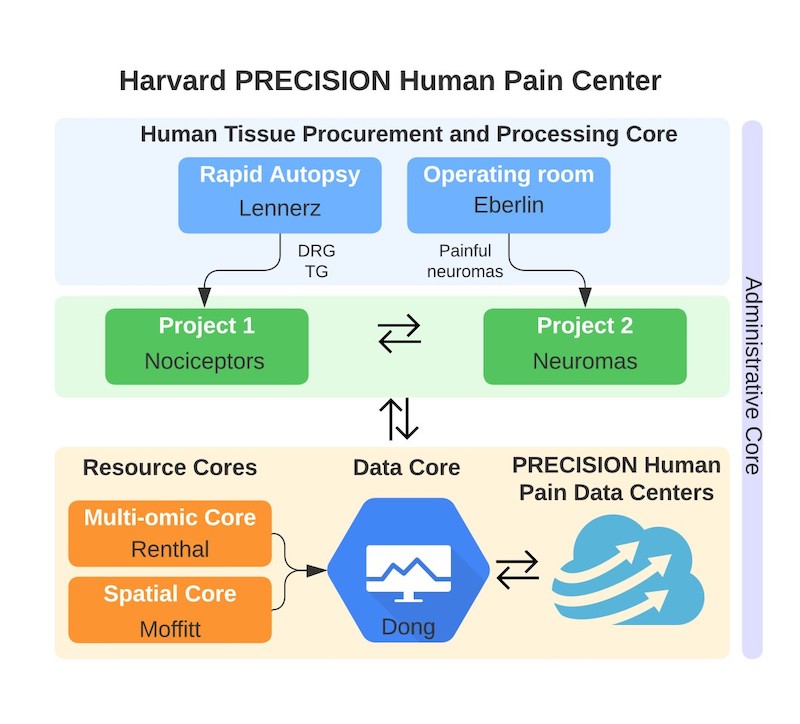Chronic pain affects more than 25 million Americans per year, with enormous impacts on both quality of life and productivity. Despite advances in our understanding of nociception in animal models, new and effective treatments for patients with chronic pain have been lacking. The poor translation between mouse and human pain targets has highlighted limitations of animal models of pain. Recent advances using human-derived tissue position pain researchers to make important new advances, improving opportunities for clinical translation. The Harvard PRECISION Human Pain Center proposes to leverage state- of-the-art single-cell technologies to characterize human nociceptor subtypes and how their gene expression patterns vary across diverse cell populations as well as in chronic pain conditions that clearly localize to these cells (chronic phantom limb pain associated with painful neuromas). The Projects will generate a wealth of data for the scientific community by closely integrating with five cores tasked with procuring high- quality human pain-related tissues following strict regulatory practices, offering the latest single-cell gene multi-omic technologies, performing advanced single-cell spatial transcriptomic analysis, managing, integrating, and distributing all of the data, and administrating and connecting to Center the other PRECISION Human Pain Network Centers.
The data generated by our Center will contribute to this broader PRECISION Human Pain Network and to help identify and prioritize of novel pain therapeutic targets for future investigation.
